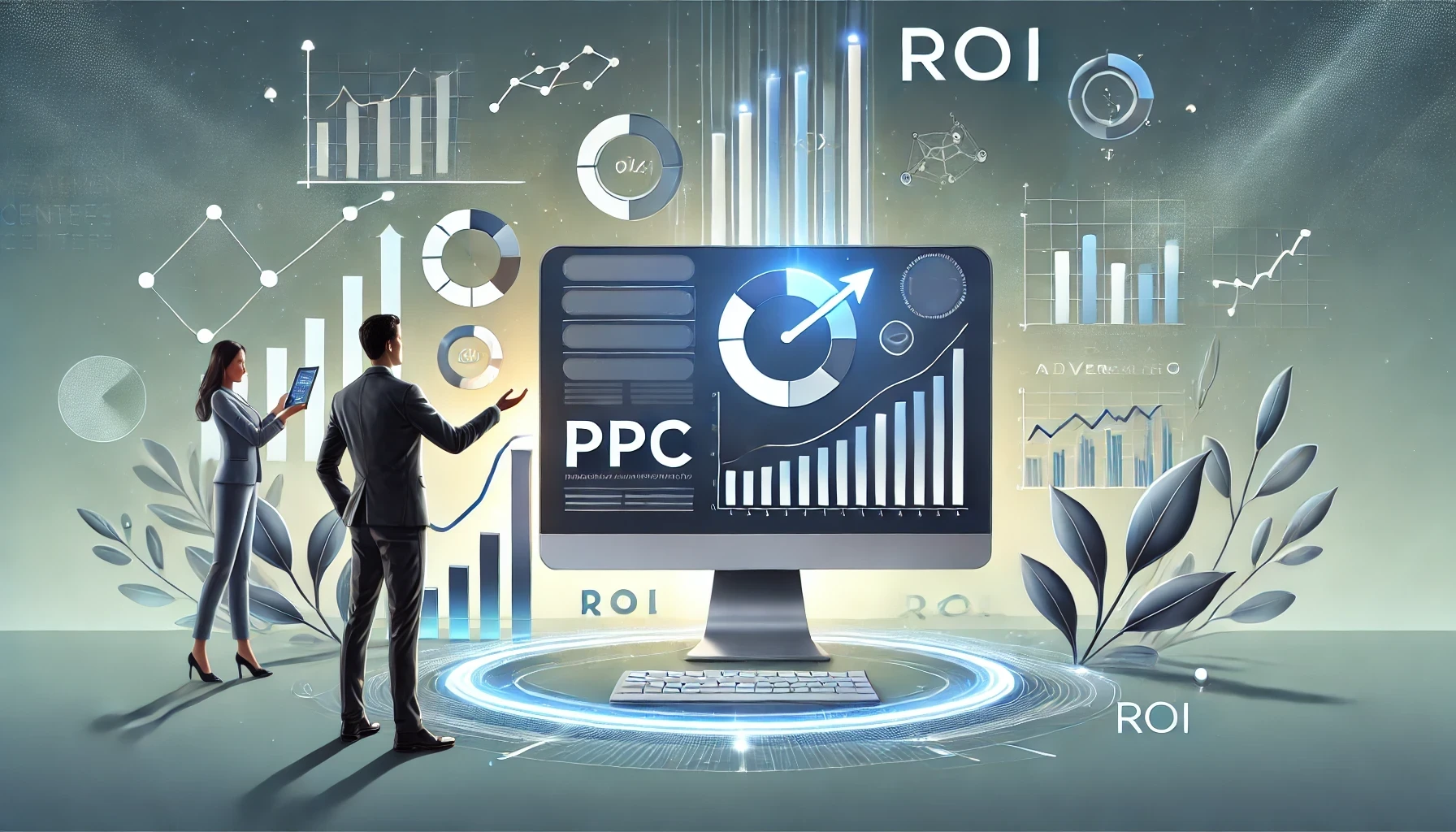
Maximizing Impact in Addiction Treatment Marketing with PPC
Table of Contents
Drug Rehab Lead Generation Strategy
Introduction: The Critical Role of PPC in Addiction Treatment Marketing
Understanding the Digital Landscape of Addiction Recovery
The Intersection of PPC and Patient Outreach
In the rapidly evolving terrain of addiction treatment marketing, Pay-Per-Click (PPC) campaigns stand out as one of the most powerful tools for reaching individuals in need of recovery services. The digital landscape has become a pivotal battleground for addiction recovery, with effective PPC strategies offering a lifeline to those seeking help. Navigating the complexities of addiction treatment PPC requires a robust understanding of the digital ecosystem and the role of targeted advertising in patient outreach. PPC in the addiction treatment sphere goes beyond mere clicks and impressions; it is an ethical imperative to connect patients with life-saving services. By employing a compassionate yet conversion-focused approach, rehab centers can leverage PPC to make a meaningful impact.
Foundations of Addiction Treatment PPC
Substance Abuse Advertising: A PPC Overview
The Importance of Ethical Practices in Substance Abuse Advertising
Substance abuse advertising demands a delicate balance between aggressive marketing and ethical responsibility. PPC campaigns for addiction treatment must adhere to stringent regulations while also striving to reach the individuals who can benefit the most from their services. Ethical practices in substance abuse advertising are not just legal mandates but also moral obligations to ensure that vulnerable individuals receive the help they need.
PPC campaigns must be meticulously planned and executed, focusing on the accuracy of information and the sincerity of the message. Transparency and honesty in advertising build trust with your audience and establish your treatment center as a reliable source of help.
Behavioral Health Marketing and the Digital Shift
How Digital Marketing is Transforming Rehabilitation Services
Behavioral health marketing has undergone a digital transformation, opening up new avenues for rehab centers to connect with those in need. The shift to digital platforms means that potential patients are just a click away from finding support. Behavioral health marketing now must integrate SEO, content marketing, and social media strategies alongside PPC to create a cohesive online presence.
Digital marketing in the realm of rehabilitation services is not just about visibility; it's about creating a sense of community and support, offering resources, and making the first step toward recovery as accessible as possible.
Drug Rehab Marketing Strategies: The Big Picture
Developing a Comprehensive Marketing Plan for Addiction Centers
Developing effective drug rehab marketing strategies requires a panoramic view of both the industry landscape and the individual needs of your target audience. A comprehensive marketing plan for addiction centers involves a multi-faceted approach that combines PPC with other digital marketing tactics to achieve an overarching goal: to facilitate the journey from awareness to action.
By understanding the nuances of your audience, their search behaviors, and the competitive environment, you can craft tailored messages that resonate deeply and drive conversions.

Strategizing for Success
SEM for Rehab Centers: Crafting Winning Strategies
The Role of Search Engine Marketing in Lead Generation
Search Engine Marketing (SEM) for rehab centers encompasses more than just PPC; it is a holistic approach to visibility on search engines. Crafting winning SEM strategies involves understanding the complexities of keywords, ad copy, and user intent. A well-executed SEM campaign can significantly boost lead generation by placing your services in front of the right audience at the right time.
By combining technical SEO with compelling content and strategic PPC campaigns, SEM for rehab centers becomes a formidable tool in the digital marketing arsenal.
Drug Treatment CPC Strategy: Balancing Cost and Quality
Effective Budget Allocation for Maximum ROI
Balancing the cost-per-click (CPC) with the quality of leads is a critical aspect of any successful drug treatment marketing strategy. To achieve maximum return on investment (ROI), it's essential to fine-tune your bid strategies, select high-intent keywords, and optimize ad placement. An effective CPC strategy is not about spending more; it's about spending smarter.
By continuously analyzing performance data, rehab centers can adjust their campaigns to target the most profitable segments, ensuring that every dollar spent contributes to a sustainable marketing effort.
Addiction Therapy PPC Campaigns: Design and Execution
Creating Campaigns That Connect and Convert
Designing and executing addiction therapy PPC campaigns is both an art and a science. The key to creating campaigns that connect with individuals and motivate them to take action is understanding the emotional journey of seeking help. Your ad copy must empathize with potential clients while offering a clear path to recovery.
By focusing on the unique selling points of your therapy programs and addressing the specific concerns of your target audience, you can design PPC campaigns that resonate on a deeper level and encourage meaningful engagement.
PPC Management for Rehab: Navigating the Complexities
The Do's and Don'ts of PPC Management in Rehab Marketing
Navigating the complexities of PPC management in the rehab marketing sector requires a keen understanding of the various nuances involved. From adhering to advertising guidelines to optimizing for quality scores, PPC management is a meticulous process that demands constant vigilance.
It's crucial to stay updated on the latest industry trends and algorithm changes to ensure your campaigns remain effective and compliant. By doing so, you can avoid common pitfalls and capitalize on opportunities to refine your targeting, improve your ad copy, and enhance the overall performance of your campaigns.

Advanced PPC Tactics
Targeted PPC for Addiction Help: Reaching the Right Audience
Behavioral Targeting for Rehab Services
Leveraging User Data for Precision Advertising
Targeted PPC for addiction help is about reaching individuals who are actively seeking recovery options. By leveraging user data, rehab services can create precision advertising that speaks directly to the needs and behaviors of their audience. Behavioral targeting involves analyzing search patterns, website visits, and engagement to tailor your ad campaigns for maximum relevance and impact.
By understanding the specific characteristics and motivations of your target demographic, you can craft PPC ads that are more likely to resonate and result in conversions, making every ad dollar count.
Drug Treatment Facility Ad Targeting and User Intent
Aligning Campaigns with Potential Patients’ Needs
When it comes to drug treatment facility ad targeting, understanding user intent is paramount. It's about aligning your campaigns with the needs and desires of potential patients. By dissecting the search terms used by your audience, you can gain insights into their stage of the decision-making process and tailor your ads to meet them where they are.
Whether they are in the early stages of research or ready to commit to a treatment program, your PPC ads must offer clear, compelling reasons to choose your facility over others.
Rehab PPC Keyword Research: Uncovering High-Intent Keywords
Ad Group Structuring for Addiction Treatment
Organizing Themes and Topics for Clarity and Impact
Rehab PPC keyword research is a critical step in uncovering the terms and phrases that indicate high intent to take action. By structuring your ad groups around specific themes and topics, you can create a clear and impactful ad experience for your audience. Clear ad group structuring ensures that your ads are highly relevant to the search queries, resulting in better click-through rates and conversions.
Properly organized ad groups also assist in the overall management of your PPC campaigns, making it easier to optimize and refine your strategy over time.
Drug Rehab Google Ads Campaigns: A Closer Look
Conversion-Focused Rehab Ads: Crafting Messages That Motivate
Writing Ad Copy That Drives Action
Crafting conversion-focused rehab ads is about creating messages that motivate potential patients to take the next step. A closer look at successful drug rehab Google Ads campaigns reveals the importance of compelling ad copy that resonates with the emotional state of the audience. Writing ad copy that drives action involves a deep understanding of the challenges faced by those struggling with addiction and crafting empathetic, solution-oriented messages.
By emphasizing the benefits and positive outcomes of your treatment programs, you can encourage individuals to reach out and begin their journey to recovery.

Measuring and Optimizing Performance
PPC Keywords for Addiction Services and Conversion Tracking
Analyzing and Interpreting User Interactions
The selection of PPC keywords for addiction services is a crucial component of campaign performance. Conversion tracking allows rehab marketers to analyze and interpret user interactions, providing invaluable insights into what drives engagement and leads. By carefully monitoring these interactions, marketers can fine-tune their keyword strategies, ad copy, and landing pages to better serve their target audience and improve conversion rates.
Understanding the connection between keyword selection and user behavior is essential for optimizing your PPC campaigns and maximizing their effectiveness.
Click-Through Rates for Addiction Marketing: What's Good?
Benchmarking Campaign Performance Against Industry Standards
Click-through rates (CTRs) serve as a key performance indicator in addiction marketing, reflecting the relevance and appeal of your ads to the target audience. But what constitutes a ""good"" CTR? Benchmarking campaign performance against industry standards can help rehab marketers gauge the success of their PPC efforts.
By analyzing CTR data, marketers can identify areas of improvement, adjust targeting strategies, and craft more engaging ad copy to increase the likelihood of clicks and conversions. A good CTR is one that consistently meets or exceeds industry benchmarks while driving qualified traffic to your services.
ROI in Rehab PPC Advertising: Understanding Your Returns
Identifying and Measuring Key Performance Indicators
Achieving a strong ROI in rehab PPC advertising requires a thorough understanding of the key performance indicators (KPIs) that measure the returns on your campaigns. Identifying these KPIs is critical for evaluating the effectiveness of your PPC efforts and making informed decisions about budget allocation and strategy adjustments.
By monitoring metrics such as conversion rates, cost per acquisition, and overall campaign spend, rehab centers can ensure that their PPC advertising is not only reaching the right audience but also delivering tangible results and a positive return on investment.
Landing Page Optimization for Rehab: The Final Hurdle
Ensuring a Seamless User Journey from Ad to Action
Landing page optimization for rehab centers is the final hurdle in converting PPC clicks into meaningful actions. A well-optimized landing page ensures that the user's journey from ad to action is seamless, providing a clear and compelling reason to take the next step. From the headline to the call-to-action, every element of the landing page should align with the intent of the ad and the needs of the visitor.
By refining the user experience and removing any friction points, rehab centers can significantly increase the likelihood of converting visitors into leads or patients.
Beyond Clicks: The Bigger Picture
Online Marketing for Detox Programs and the Customer Journey
Mapping Out the Path from Awareness to Admission
Online marketing for detox programs involves more than just generating clicks; it requires a strategic approach to guiding potential clients along the customer journey. From the initial moment of awareness to the final decision to admit, each touchpoint must be thoughtfully crafted to build trust and encourage progression.
By mapping out the customer journey and aligning your marketing efforts with each stage, detox programs can create a cohesive experience that gently leads individuals to the help they need.
Paid Media for Drug Recovery: Expanding Your Reach
Exploring Channels Beyond PPC
Paid media for drug recovery extends beyond traditional PPC campaigns, encompassing a variety of channels that can amplify your reach. From social media advertising to display networks, exploring these channels allows rehab centers to expand their visibility and connect with a broader audience.
By diversifying your paid media strategy, you can tap into new opportunities to engage potential clients and increase the chances of your message resonating with those in need of recovery services.
Digital Advertising for Substance Rehabilitation: Trends and Innovations
Staying Ahead in a Competitive Digital Space
Digital advertising for substance rehabilitation is a constantly evolving field, with new trends and innovations emerging regularly. Staying ahead of the curve means keeping a pulse on the latest digital marketing developments and leveraging cutting-edge tactics to stand out in a competitive space.
By embracing innovation and adapting to the changing digital landscape, rehab centers can maintain a dynamic and effective online presence that captures the attention of their target audience.
Inpatient vs. Outpatient Program PPC: Tailoring the Approach
Customizing Campaigns Based on Treatment Offerings
The distinction between inpatient and outpatient program PPC campaigns lies in the tailored approach required for each treatment offering. Customizing your PPC strategy to match the specific attributes and benefits of inpatient or outpatient services ensures that your ads speak directly to the needs of those seeking help.
By differentiating your campaign messaging and targeting, you can effectively communicate the unique value proposition of your treatment programs and attract the right clients to the appropriate level of care.

Conclusion: Crafting a Future-Proof Addiction Treatment PPC Strategy
Summarizing Key Takeaways for Effective PPC in Rehab Marketing
In conclusion, crafting a future-proof addiction treatment PPC strategy involves a comprehensive understanding of the digital marketing landscape and the nuances of the addiction recovery audience. By implementing the key takeaways from this article, rehab centers can create effective, ethical, and high-converting PPC campaigns.
Next Steps: Implementing Your Custom PPC Plan for Addiction Treatment Services
The next step is to take the insights gained and apply them to your custom PPC plan. By continuously optimizing your campaigns, staying informed about industry trends, and maintaining a focus on the customer journey, you can ensure the longevity and success of your addiction treatment marketing efforts.
Questions You Might Ponder
What ethical considerations are important in substance abuse advertising PPC campaigns?
Ethical considerations in substance abuse advertising PPC campaigns are crucial due to the sensitive nature of the subject and the potential vulnerability of the target audience. Advertisers must prioritize honesty, transparency, and compliance with regulations such as HIPAA. They should avoid exploiting emotions or providing misleading information. Ethical advertising should focus on providing helpful information, resources, and support to those seeking addiction treatment.
How can digital marketing transform the reach of rehabilitation services?
Digital marketing transforms the reach of rehabilitation services by leveraging the power of the internet to connect with a wider audience. It uses various online platforms and strategies, including SEO, content marketing, social media, and PPC, to engage with individuals in different stages of their recovery journey. Digital marketing offers the ability to target specific demographics, track campaign effectiveness, and provide accessible information to those seeking help.
What are some key components of a comprehensive marketing plan for addiction centers?
Key components of a comprehensive marketing plan for addiction centers include a clear brand message, understanding the target audience, a mix of digital marketing strategies (SEO, PPC, social media), measurable goals, and ethical advertising practices. It should also consist of ongoing analysis and optimization, community outreach, testimonials and success stories, and a strong online presence that offers valuable content and resources.
How does SEM contribute to lead generation for rehab centers?
SEM contributes to lead generation for rehab centers by increasing visibility on search engine results pages (SERPs) through both organic search (SEO) and paid search (PPC). It involves keyword research, ad copywriting, bid management, and constant campaign optimization to ensure the ads reach individuals actively searching for addiction treatment options, thereby generating high-quality leads.
What strategies can rehab centers use to balance CPC and lead quality?
Rehab centers can balance CPC and lead quality by conducting thorough keyword research to identify high-intent search terms, setting appropriate bids, using negative keywords to filter out irrelevant traffic, and continuously testing and optimizing ad copy and landing pages. They should also analyze campaign data to understand which keywords and ads are driving the best results and adjust their strategies accordingly.
How can addiction therapy PPC campaigns be designed to connect with and convert potential patients?
Addiction therapy PPC campaigns can be designed to connect with and convert potential patients by focusing on empathetic messaging that resonates with the target audience's emotional state and needs. Campaigns should highlight the benefits of the treatment programs, provide clear and compelling calls to action, and address common concerns. Personalized ad copy and targeting based on user behavior and intent can also increase the likelihood of conversion.
What are the do's and don'ts of PPC management in rehab marketing?
The do's of PPC management in rehab marketing include staying informed on industry trends, adhering to advertising guidelines, regularly reviewing and optimizing campaigns, and focusing on ethical advertising practices. The don'ts include neglecting negative keywords, ignoring conversion tracking, using misleading or insensitive ad copy, and failing to test different ad variations for performance.
How can behavioral targeting improve the precision of PPC campaigns in addiction help services?
Behavioral targeting can improve the precision of PPC campaigns in addiction help services by utilizing data on users' online behavior, such as search queries, website visits, and engagement with content. This information allows marketers to create highly relevant ads that are more likely to resonate with the audience. Behavioral targeting ensures that ads are served to individuals who are most likely to be interested in and benefit from the offered services.
Would you like to see your PPC campaigns thrive in the ever-changing digital space? Start planning your bespoke strategy today.